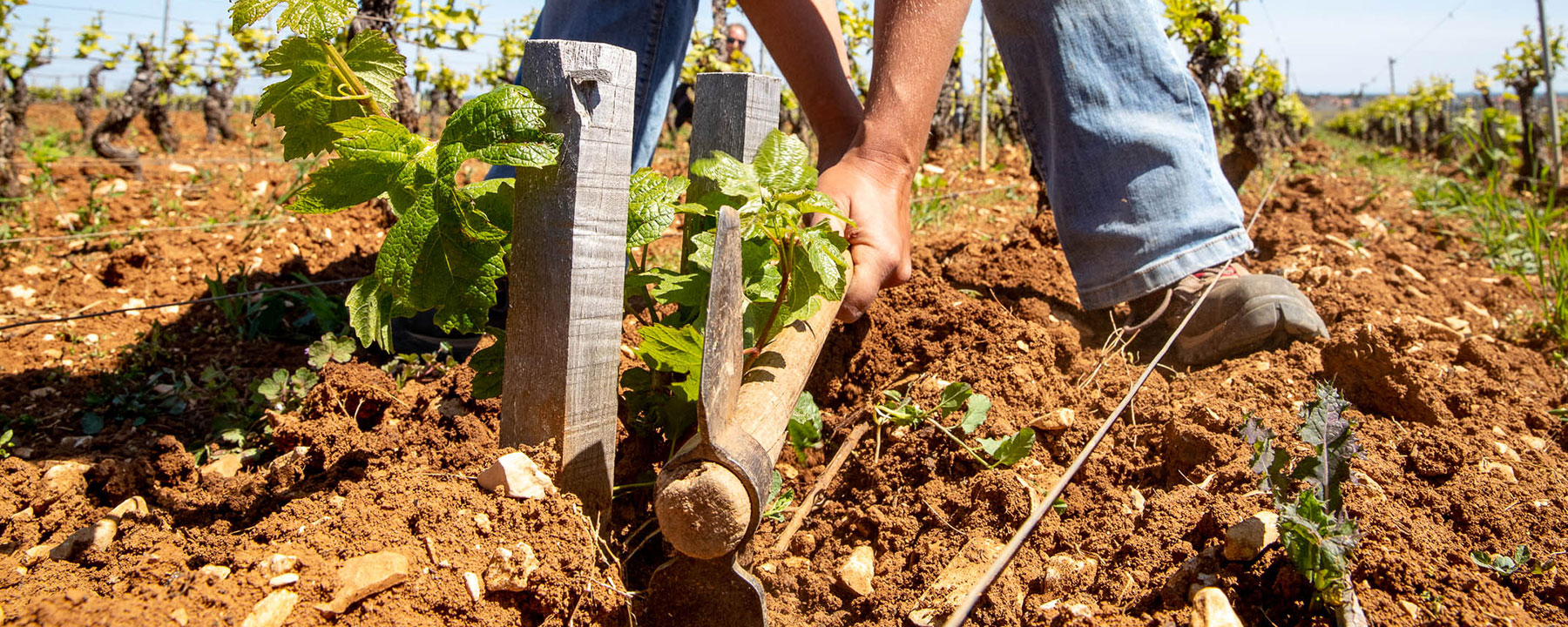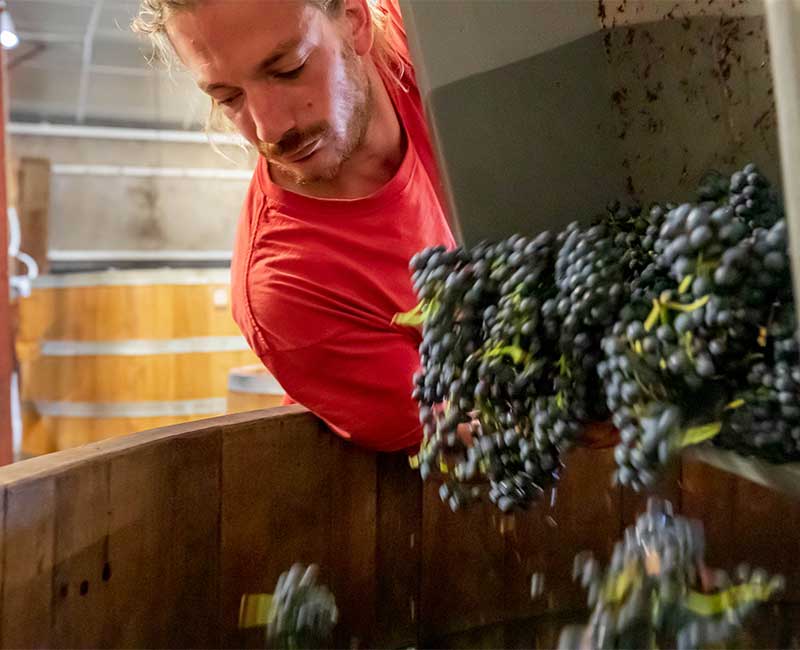
We pay utmost attention to the grapes, the quality of which depends on many factors
Genetics
The careful selection of the plants has been part of the estate’s tradition for several generations; Bernard Clair (Bruno’s father) was passionate about selecting the right variety that may have produced small yields but was essential for the production of great wines, especially in late years.
The health of the vines
- Pruning : Since 2015, Guyot-Poussard has been the pruning method in the entire estate. This aims to ensure the longevity of the vines by preserving the sap flow. Pruning has undergone some small changes (devised by Monsieur Bourdarias), making the work easier and more practical, and boosting the vine’s reserves.
- Plant protection: The estate is not certified organic because we want to retain the possibility of using synthetic products in very difficult years for the management of mildew (such as in 2016). In more manageable years (such as 2019 or 2020), we only use natural products and greatly reduce copper applications.
Soil health:
Since the start of his career, Bruno has always enriched the vines with organic manure, which is indispensable for maintaining the natural cycle of soil microorganisms. Since the 1990s, he has also stopped spraying the weeds with chemicals.
Although an excess of weedkillers can be harmful, it is clear that excessive ploughing can be too (gully erosion, exposed soil, carbon release, etc.). This is why we no longer plough the inter-rows, and we sow cover crops as much as possible in the autumn (legumes and cereals for the most part). This contributes much organic matter, it results in better water retention thanks to the pathways formed by the roots, and it protects the soil from erosion.
Vinification
Red wines
In recent vintages, the estate has increased the practice of whole-bunch vinification (by 20–50% depending on the appellation). The red wines are fermented in open wooden vats for a fortnight, with a low dose of SO2. At the estate, the extraction process varies according to the character of the appellation. The wine is then matured for 18 to 20 months in oak barrels (up to 50% new barrels depending on the appellation) before being bottled.
White wines
The white wines are vinified in stainless steel vats without using SO2; they then finish fermenting and are matured in oak barrels or foudres (up to 20% new barrels). The wines are matured on lees for 16 to 18 months without bâtonnage. The expression of the terroir is always our aim at the estate. The fact that our vines are almost exclusively planted on the limestone bedrock naturally gives our white wines a rather mineral character.
Marsannay Rosé
Half of the cuvée is pressed immediately; vinification of the other half is via cold maceration for a few days – it is then pressed to draw out the colour and aromas.
And since quite recently, the rosé is matured mainly in barrels and foudres for 10 to 12 months.


